Personal Reflection on Culture: Identity, Power, and Perspectives
VerifiedAdded on 2023/06/13
|5
|898
|407
Essay
AI Summary
This essay presents a personal reflection on culture and its impact on individual identity. It addresses key issues such as the social construction of identity, power and privilege within cultural contexts, the functions and elements of culture, and various theoretical perspectives. The reflection explores how social structures like location, income, gender, and nationality shape cultural identity and emphasizes the importance of recognizing power imbalances within society. It further discusses how culture provides solutions to complex situations, shapes personality, and comprises elements like language, symbols, norms, and values. The author assesses their personal journey through learning about these concepts and acknowledges the need for change in their own beliefs and perspectives regarding cultural norms. The essay concludes by recognizing the existence of sub-cultures within larger ethno-cultural contexts and the significance of belonging to a group.
1 out of 5
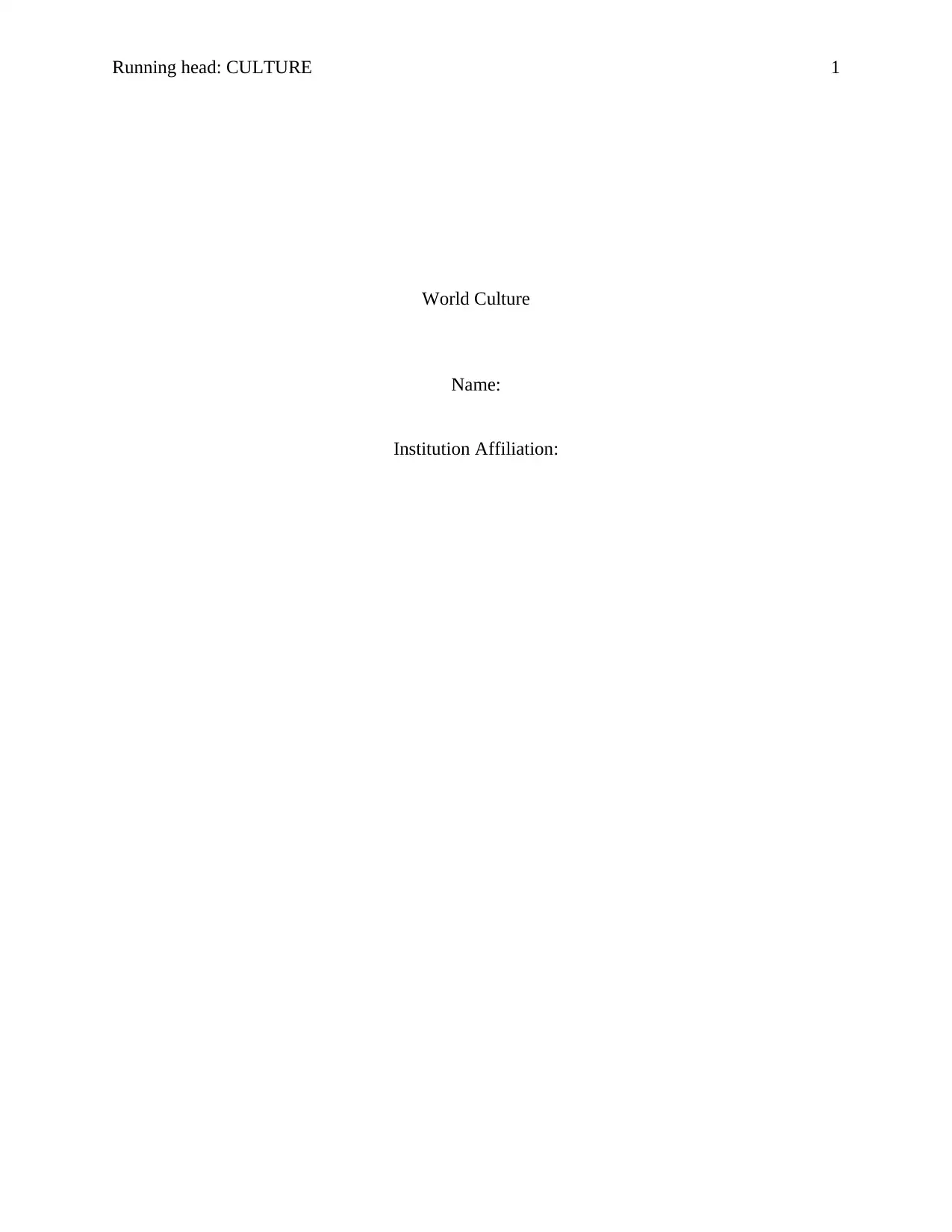
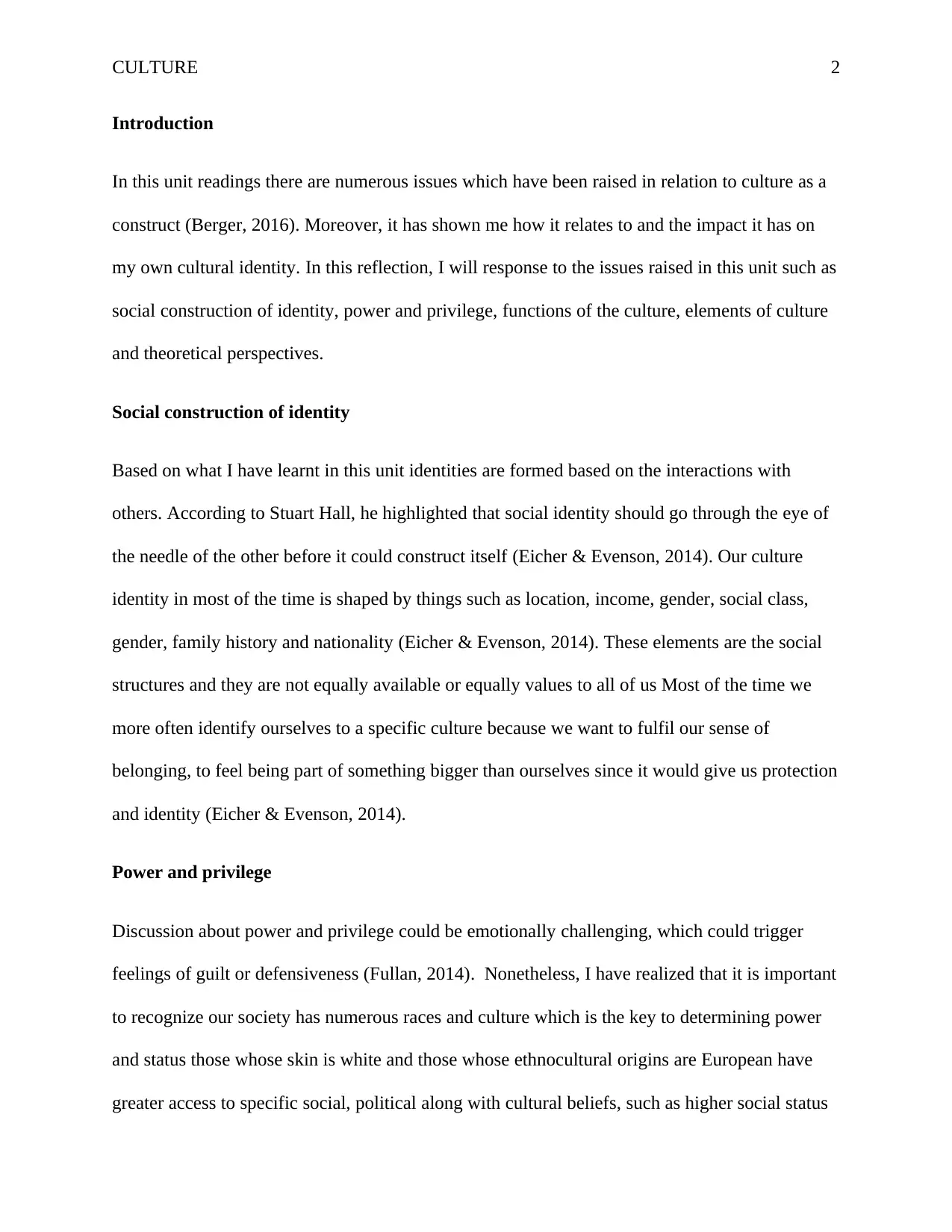
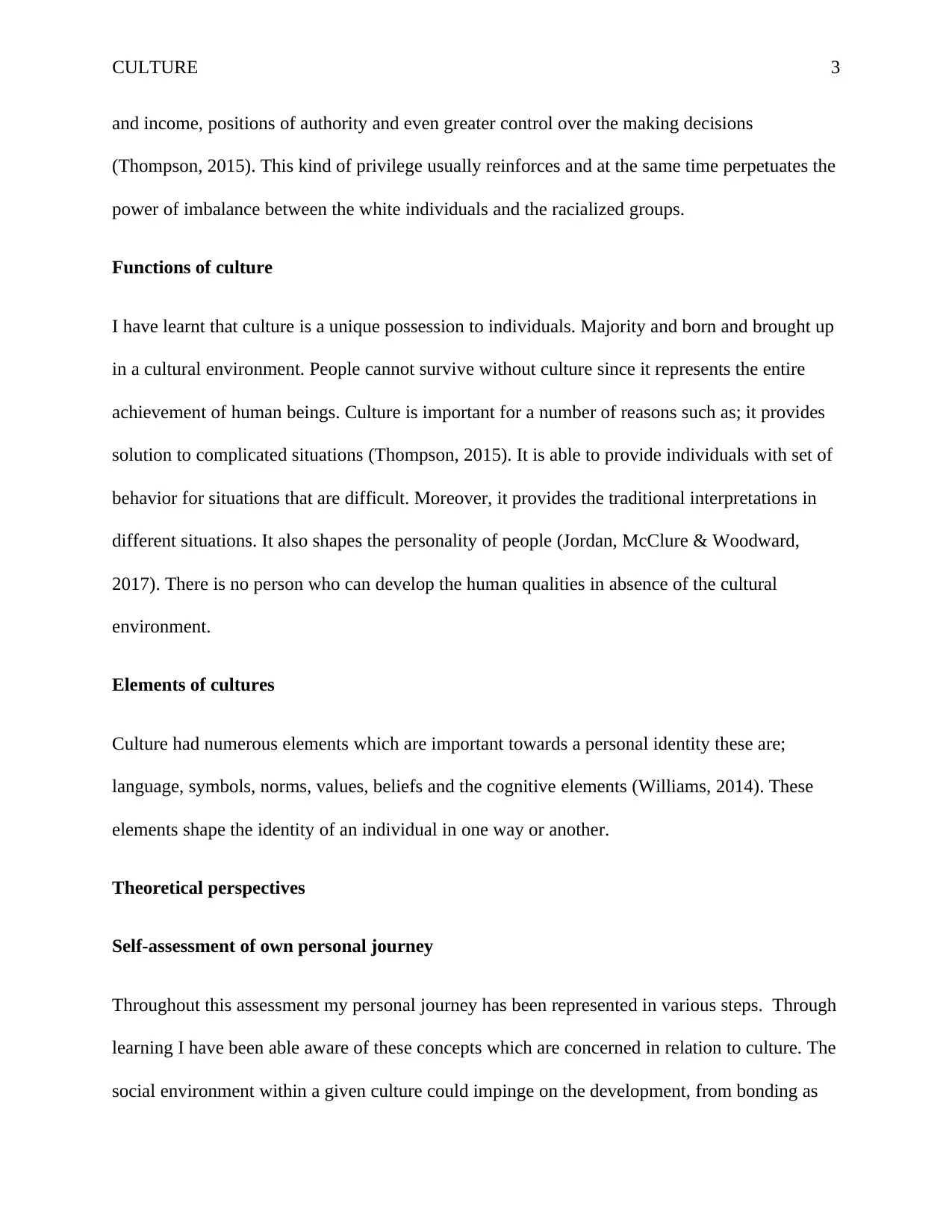

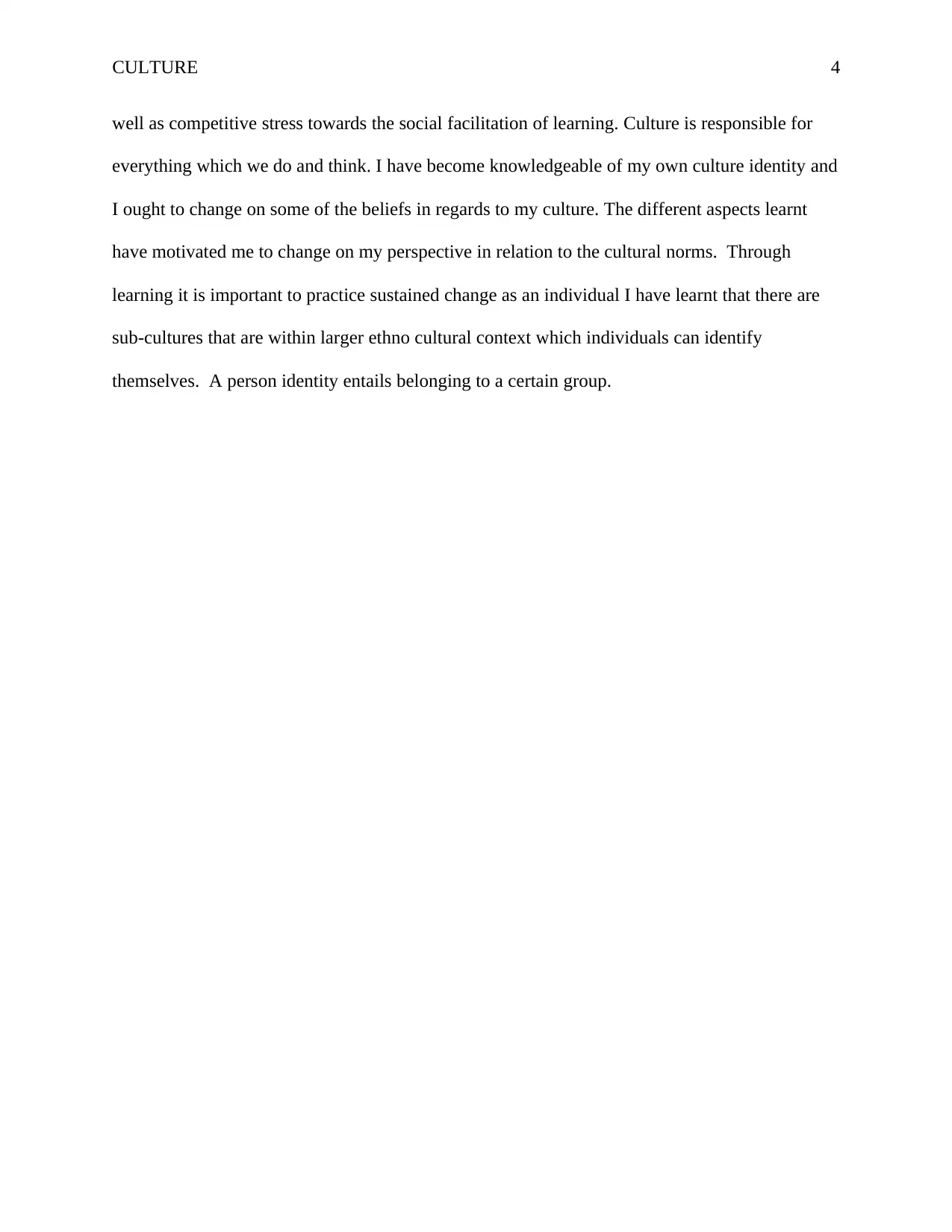
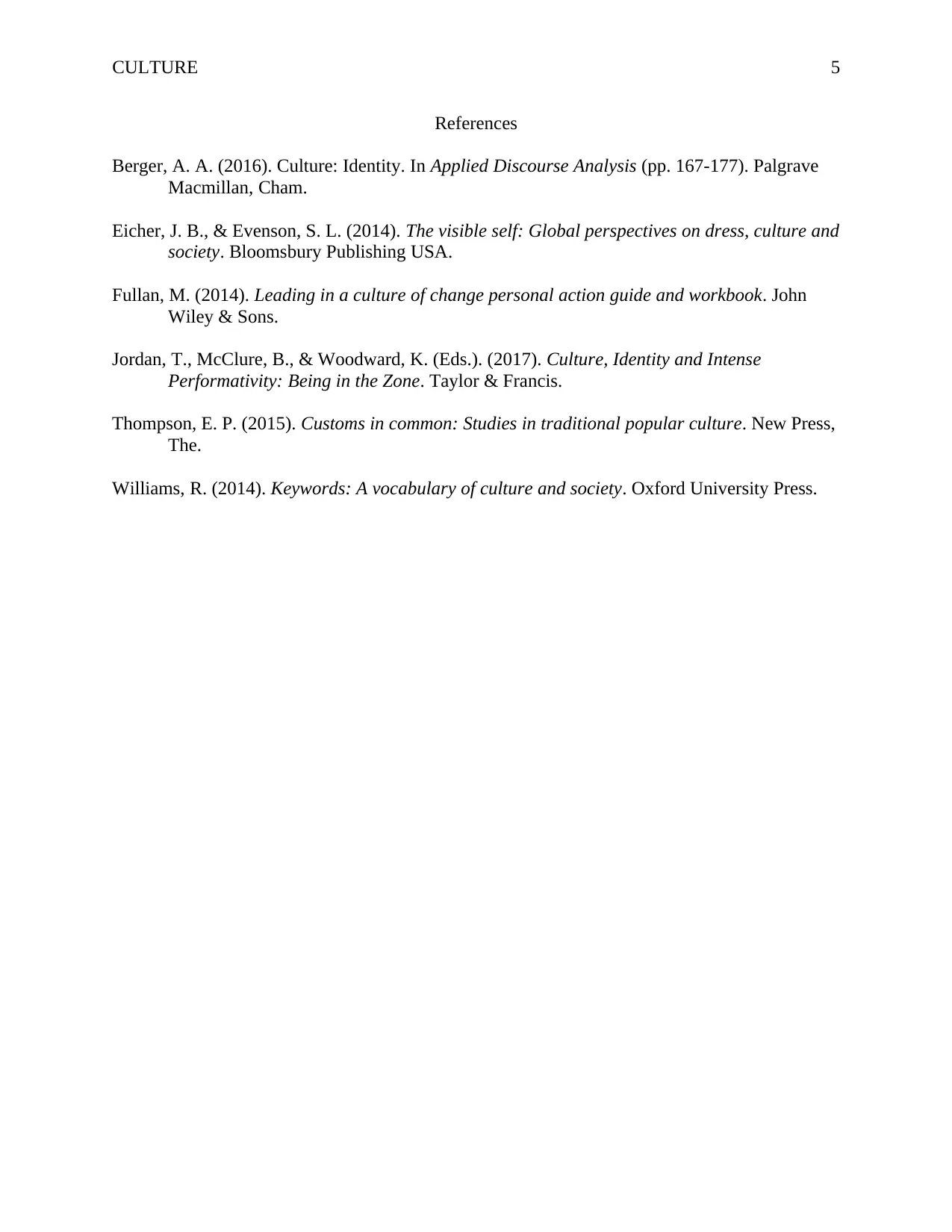




![[object Object]](/_next/static/media/star-bottom.7253800d.svg)